
Article
Spring | 2025
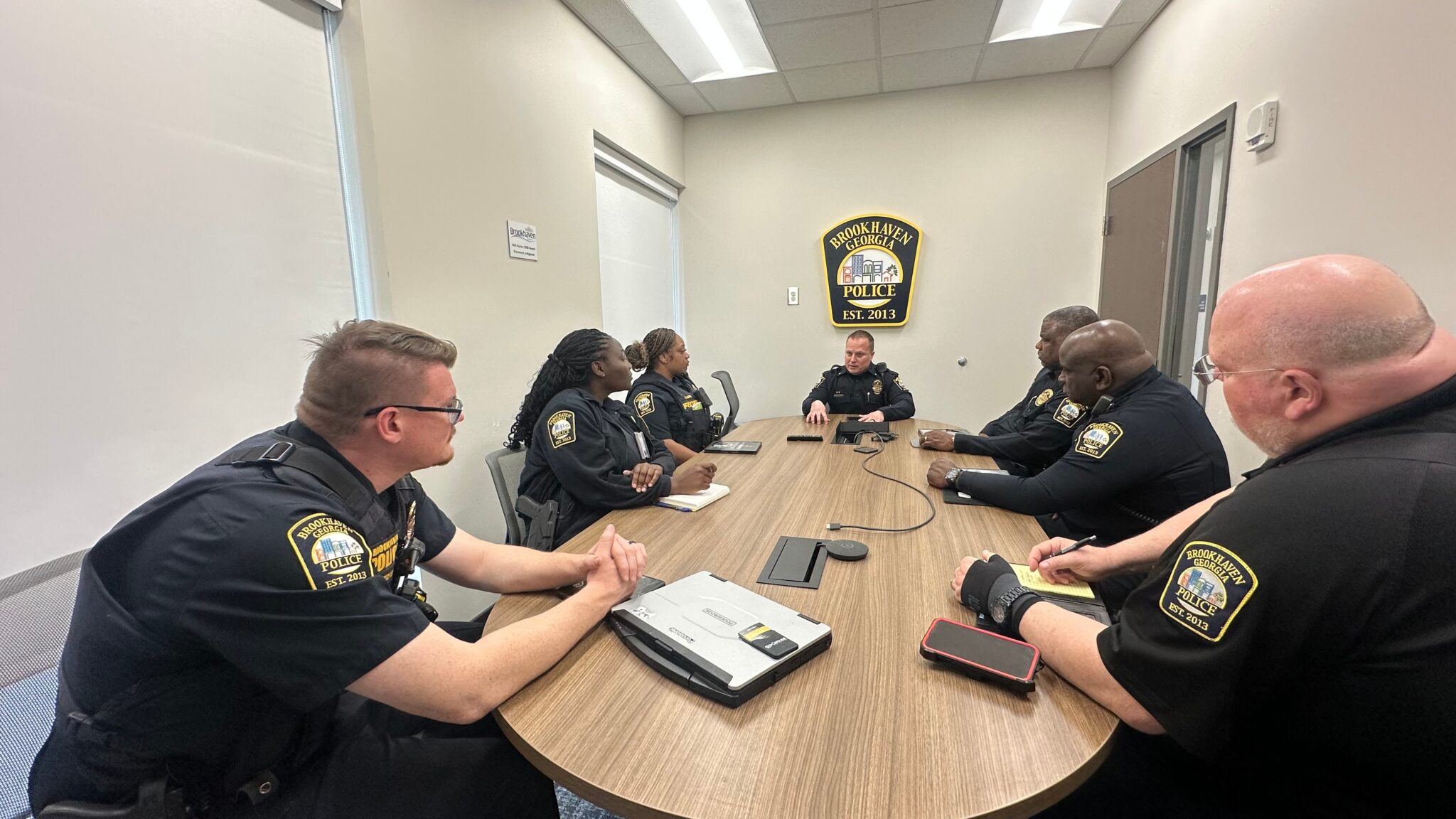
Brookhaven Police Department: A Model for Leadership Development and Policing with Empathy
By Brandon Gurley
Spring | 2025
"Great leaders don't set out to be a leader. They set out to make a difference. It is never about the role - always about the goal."
- Lisa Haisha
Leadership within law enforcement is not merely about authority and safety—it encompasses both organizational leadership, which fosters a strong internal culture, and community leadership, which builds trust and collaboration with those we serve. Ensuring that officers are fully equipped to serve their communities effectively extends beyond traditional equipment and tactics; it includes critical people skills such as communication, emotional intelligence, and empathy, which are essential for effective policing. The Brookhaven Police Department (BPD) has taken significant strides in leadership development, setting a standard for policing excellence while reinforcing a culture of transparency, accountability, and collaboration. Through a commitment to professional development and strategic leadership initiatives, BPD and the City of Brookhaven have demonstrated that investing in people leads to measurable success both internally and externally with how the department engages with the community.
A Commitment to Leadership Development
Recognizing leadership’s critical role in officer retention and morale, the department introduced its Standards for Conduct and Collaboration in 2023. These guiding principles—Transparency & Truth, Communicating Context, Accountability, and Shared Responsibility—established a framework for ethical leadership and set clear expectations for supervisors at every level. These collaboratively developed standards guide how they lead and communicate within their agency.
Beyond setting standards, BPD has actively invested in leadership development training through executive coaching and micro-learning sessions. These efforts have focused on enhancing emotional intelligence, decision-making, and communication skills among command staff. As a result, leaders within the department are better prepared to support and coach their teams, navigate challenges, and cultivate an even stronger environment of trust and mutual respect—one that transcends beyond the organization and strengthens community engagement through positive, transparent interactions with the public.
Community Engagement Starts Within
Like all police departments, BPD understands and values community engagement as a priority for its residents. However, BPD also recognizes that meaningful community engagement begins with how officers engage with each other. When officers feel heard, supported, and valued within their own organization, they are more likely to extend that same level of care and respect to the community.
Trust is the foundation of this engagement, and it is built through the daily relationships officers develop with their peers, supervisors, and leadership. When officers know they can rely on each other and their leadership for support, guidance, and fairness, it fosters a culture of accountability and shared responsibility. This sense of trust creates an environment where officers feel empowered to communicate openly, collaborate effectively, and take ownership of their roles.
This internal culture of trust and respect naturally extends to the public. When officers operate in a department where transparency and mutual respect are prioritized, they bring those same values into their interactions with the community. Residents, in turn, recognize this commitment to genuine engagement, leading to stronger relationships, increased cooperation, and a greater sense of public confidence in law enforcement.
By strengthening relationships internally, BPD has created an environment where collaboration thrives, enhancing service delivery and reinforcing public trust in law enforcement. This internal approach to engagement has directly contributed to BPD’s ability to attract and retain high-performing officers, further solidifying its position as one of Georgia’s premier law enforcement agencies.
Organizational Identity and Strategic Planning
In 2023, and as a complementary form of leadership development, the department engaged an outside leadership resource (Atlanta-based C3 Leadership), to help facilitate a Three-Year Priority Plan (2024-2027) that was both accessible and measurable for progress. It was important, too, for the agency to strengthen its organizational Identity. As a result, they now have updated Vision, Mission, Values, and Standards statements.
Honoring the Core Values of Courage, Honor, and Integrity, the three-year strategic direction emphasizes three key priorities. For the purposes of this article, the metrics, hard deadlines, and point persons who lead each goal associated with the priority have been removed.
- Staffing: Retention & Development
- Maintain top-tier pay and benefits.
- Reduce turnover to 16% or less by 2026.
- Establish professional development goals for all personnel, with a high engagement success rate by 2025.
- Innovative Policing Solutions
- Enhance the use of emerging technologies, including artificial intelligence (AI), to improve operational effectiveness.
- Explore the feasibility of a Regional Real-Time Crime Center.
- Advance investigative capabilities through specialized training in Clearview AI and other investigative tools.
- Community Safety & Education
- Reduce pedestrian-related incidents.
- Expand engagement efforts to improve pedestrian and bicycle safety in schools.
- Strengthen partnerships with local businesses to promote crime prevention strategies, such as Crime Prevention Through Environmental Design (CPTED).
The Power of Policing with Empathy
One of the most defining aspects of BPD’s leadership approach is its emphasis on policing with empathy. Officers are trained to recognize the human element in every interaction, ensuring that community engagement is built on understanding and respect.
This philosophy extends beyond routine patrols—it influences how officers approach mental health crises, domestic disputes, and other sensitive situations. Through proactive communication and de-escalation techniques, BPD officers enforce the law and provide support and guidance to those in need. This commitment to human-centric leadership and policing has strengthened community relationships and reinforced public trust in the department.
Measuring Success: Officer Retention and Community Impact
The impact of BPD’s leadership initiatives is evident. In 2024, BPD achieved a 4.5% turnover rate—the lowest in its history. As of this writing, the department remains fully staffed and positioned to add advanced opportunities for expansion. This unprecedented success is attributed to the strong relationships built within the department, a culture of professional growth, and an unwavering commitment to officer well-being. By prioritizing leadership development, transparency, and accountability, BPD has demonstrated that when officers feel valued and supported, they are more likely to stay and thrive within the organization.
This investment in leadership has also led to measurable success in community engagement and public trust. BPD utilizes a text-based community survey tool that automatically sends a survey to individuals who have had interactions with officers. This real-time feedback mechanism allows the department to continuously gauge public sentiment and improve service delivery. The results speak for themselves—customer satisfaction consistently remains above 94%.
Beyond the numbers, the positive comments submitted by community members are prominently displayed on monitors in the department’s lobby and roll call rooms. These scrolling messages serve as a constant reminder to officers that their efforts are appreciated and valued by the community they serve. By making this recognition visible, BPD reinforces a culture where officers understand the direct impact of their work on public perception and trust.
Through this combination of internal stability and external affirmation, BPD continues to set a benchmark for policing excellence—demonstrating that when leadership invests in its people, both the organization and the community thrive.
A Model for the Future
As the Brookhaven Police Department approaches its 12th year in operation in the summer of 2025, it stands as a national model for modern policing. Through a strategic focus on leadership development, relationship-building, and community engagement, BPD has cultivated an environment where trust, accountability, and empathy are central to both internal operations and public interactions. Officers are not only supported through strong leadership and professional growth opportunities but are also continually reminded of their positive impact on the community through real-time feedback and recognition.
By investing in its people, BPD has strengthened officer retention, public trust, and overall organizational effectiveness. The department’s continued commitment to transparency, ethical leadership, and community-centered policing ensures that it remains at the forefront of progressive law enforcement practices. More than just enforcing the law, BPD is building relationships, fostering trust, and shaping a safer, more engaged community—a testament to the power of leadership that prioritizes both internal culture and external service.
Brookhaven’s approach is clear: When officers are supported, engaged, and empowered, the entire community benefits. Through this philosophy, BPD continues to set a powerful example for agencies nationwide—demonstrating that great leadership is not just about command but about care, development, and a shared commitment to public safety and well-being.
In Brookhaven, we are Better Together.
1 Citaton one goes here
2. Citation two goes here

David Blake

Duane Wolfe

Guler Arsal

Joel Suss
Research contributor and author info go here.
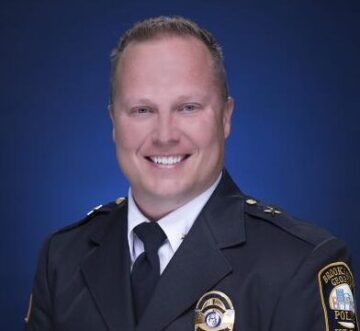
Chief Brandon Gurley
Chief Brandon Gurley has 26 years of law enforcement service. He has served with the Brookhaven Police Department since its creation in 2013 and was named as Chief in September, 2022. He holds a Bachelor’s degree in criminal justice and Master of Interdisciplinary Studies in criminal justice from Georgia State University. He is a graduate of the Northwestern University School for Police Staff and Command as well as the Georgia International Law Enforcement Exchange program.
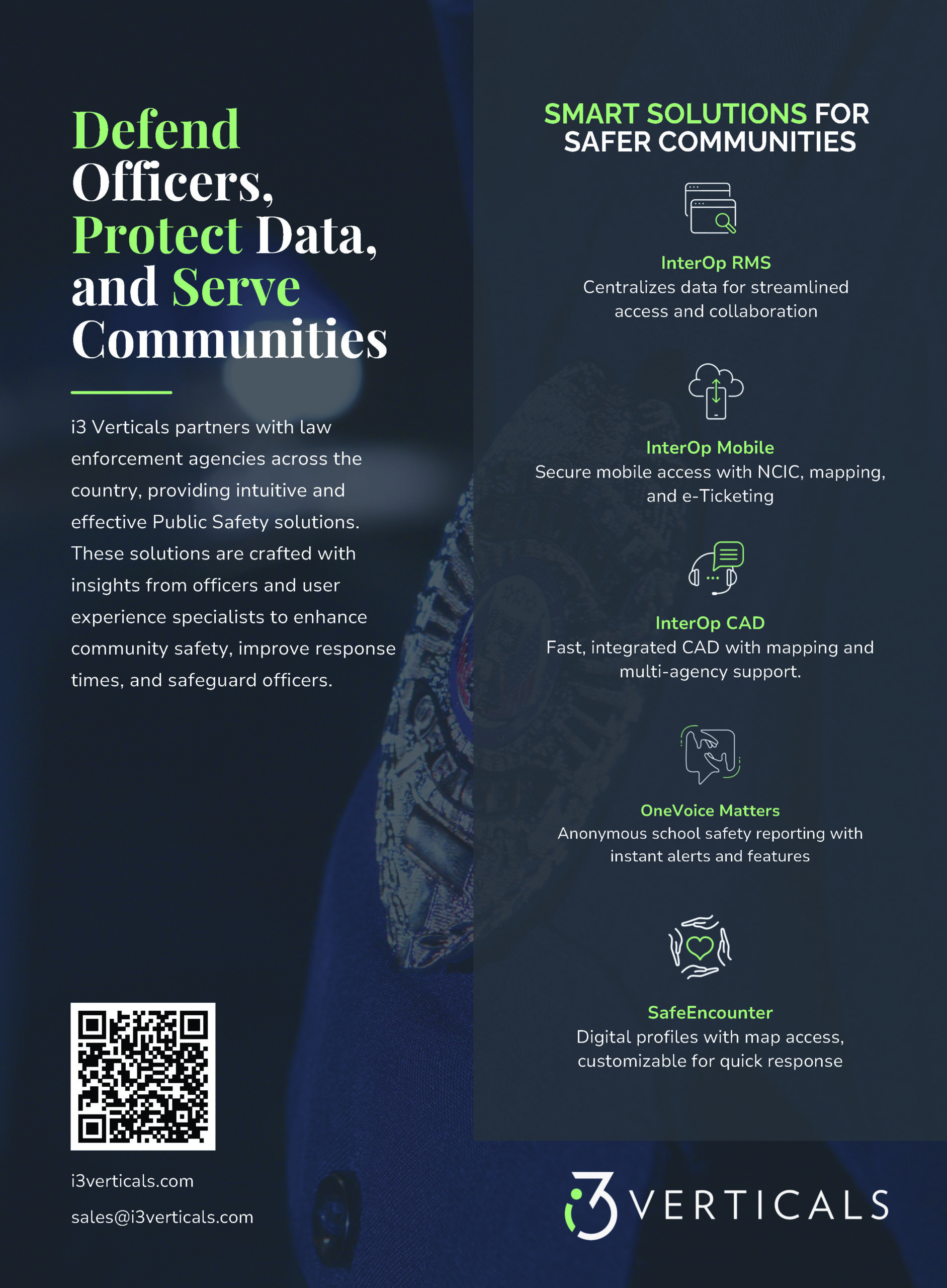

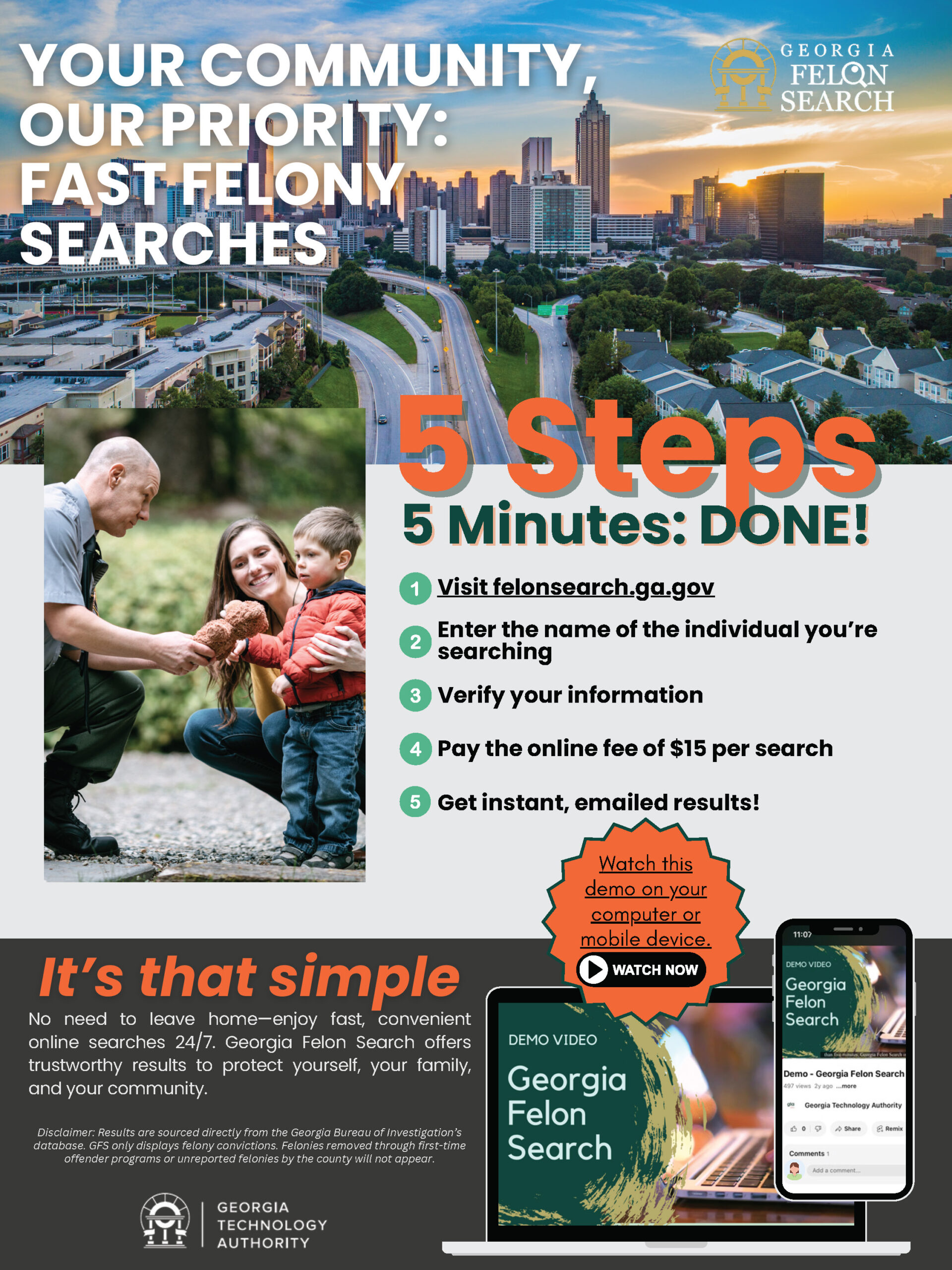
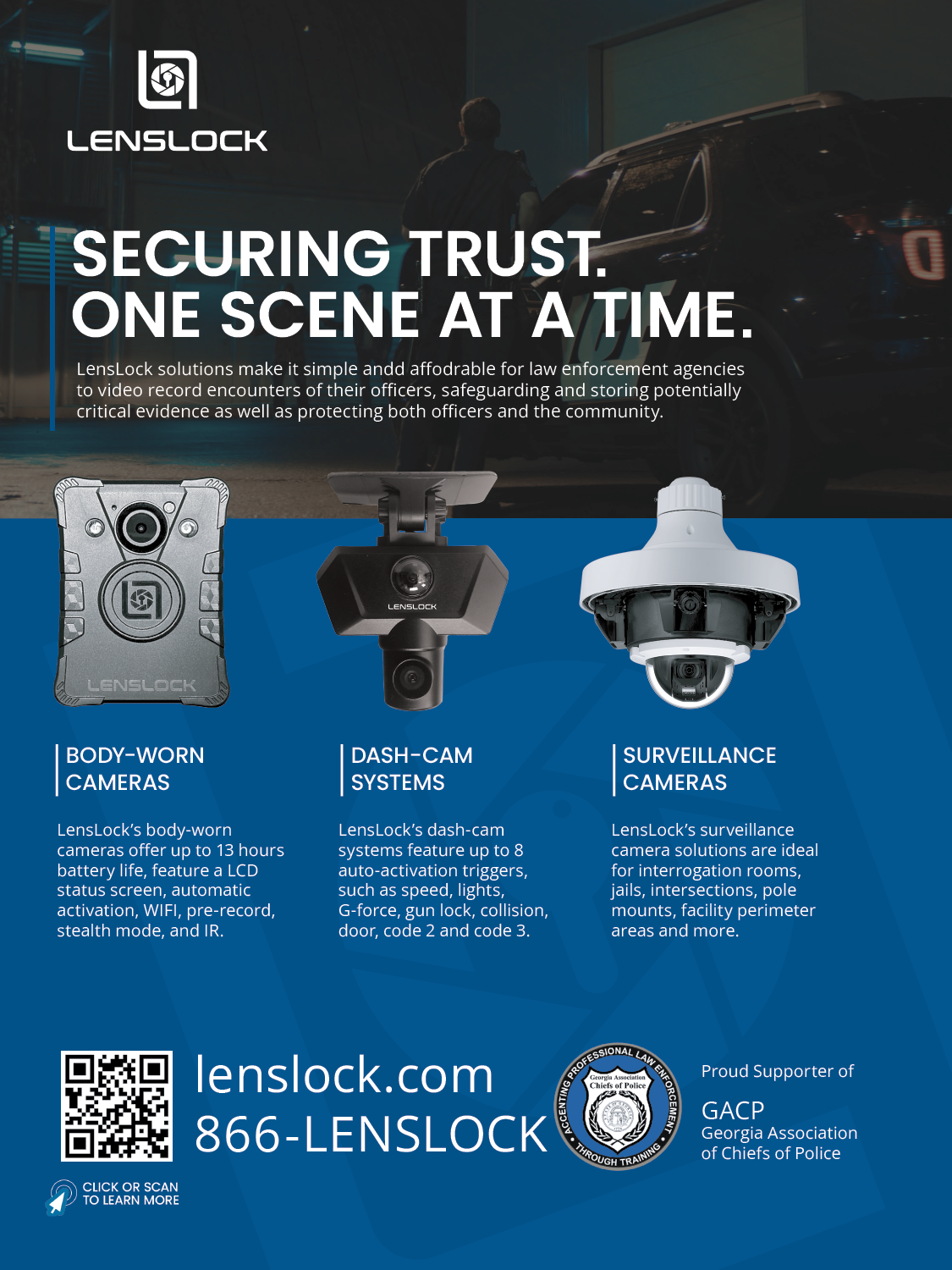



You May Also Like:
GACP PARTNERS





















